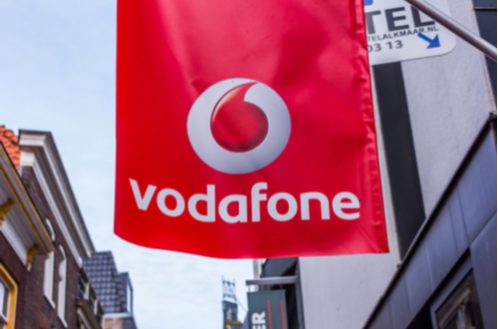
The $19 billion merger between Vodafone and Hutchison’s Three UK is on track to gain regulatory approval as Britain’s government and regulators lean towards encouraging investments over potential competition drawbacks. According to Reuters, the Competition and Markets Authority (CMA) in the UK provisionally announced on Tuesday that it sees the merger of the country’s third and fourth largest mobile operators as potentially “pro-competitive,” as long as specific conditions and consumer protections are put in place. This ruling represents a significant shift for the CMA, which has historically advocated for a minimum of four mobile operators to maintain competitive pricing.
This decision arrives just weeks after Britain’s newly instated Labour government assured investors that it would support regulatory decisions that facilitate investment in infrastructure and public services. This stance could be a crucial factor behind the CMA’s provisional green light, signaling an openness to major mergers aimed at advancing Britain’s tech and telecom sectors. The CMA’s statement on Tuesday reflects a shift from the agency’s previous rejection of similar deals, such as the one blocked nine years ago under similar circumstances.
Related: Swisscom Set to Acquire Vodafone Italia in Multi-Billion-Euro Deal
The merger between Vodafone and Three UK aims to create a more competitive telecom giant to rival BT’s EE and Virgin Media O2. Both companies have committed to investing 11 billion pounds in their combined network, a level of funding they claim would be out of reach without the merger. As economies increasingly depend on digital infrastructure, Vodafone and Three argue that this investment is critical for Britain to remain competitive in 5G deployment. Analytics from OpenSignal reveal that the UK ranks 22nd out of 25 European nations in 5G availability and download speeds and has the slowest data download rates among G7 nations—a potential disadvantage in a digital-first world, according to Reuters.
The CMA’s provisional approval hinges on Vodafone and Three UK meeting certain conditions, such as legally binding agreements to invest in 5G infrastructure and short-term protections for consumers to prevent any negative impact on service quality and pricing. These remedies are aimed at ensuring that the merger delivers tangible benefits for consumers while fostering a stronger competitive landscape in the UK telecom market.
Vodafone and Three UK have welcomed the provisional decision, seeing it as a “path to final clearance,” which could soon allow them to move forward with their ambitious plans. If the deal is ultimately approved, the combined company will be positioned as a significant competitor to existing giants in the UK telecom market, with potential to drive higher standards of service and 5G availability in the years ahead.
Source: Reuters
Featured News
Big Tech Braces for Potential Changes Under a Second Trump Presidency
Nov 6, 2024 by
CPI
Trump’s Potential Shift in US Antitrust Policy Raises Questions for Big Tech and Mergers
Nov 6, 2024 by
CPI
EU Set to Fine Apple in First Major Enforcement of Digital Markets Act
Nov 5, 2024 by
CPI
Six Indicted in Federal Bid-Rigging Schemes Involving Government IT Contracts
Nov 5, 2024 by
CPI
Ireland Secures First €3 Billion Apple Tax Payment, Boosting Exchequer Funds
Nov 5, 2024 by
CPI
Antitrust Mix by CPI
Antitrust Chronicle® – Remedies Revisited
Oct 30, 2024 by
CPI
Fixing the Fix: Updating Policy on Merger Remedies
Oct 30, 2024 by
CPI
Methodology Matters: The 2017 FTC Remedies Study
Oct 30, 2024 by
CPI
U.S. v. AT&T: Five Lessons for Vertical Merger Enforcement
Oct 30, 2024 by
CPI
The Search for Antitrust Remedies in Tech Leads Beyond Antitrust
Oct 30, 2024 by
CPI